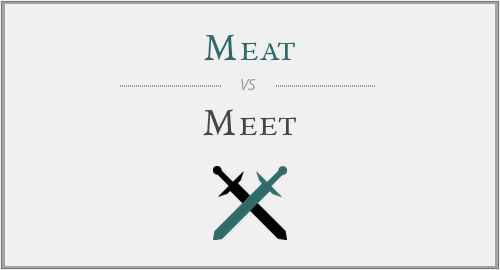"Meat" is a noun that refers to the flesh of animals that is typically used as food. Examples of meat include beef, pork, chicken, and fish.
"Meet", on the other hand, is a verb that means to come together or be introduced to someone for the first time. It can also refer to a planned gathering or appointment. For example, "Let's meet for coffee" or "I have a meeting with my boss this afternoon".
The key difference between these two words is that "meat" is a noun that refers to a type of food, while "meet" is a verb that describes an action or event. While they may sound the same when spoken, their different spellings and meanings make it important to use them correctly in writing and speaking.

To help remember the difference between "meat" and "meet", it might be helpful to associate "meat" with food and "meet" with social interaction.




Have a discussion about this article with the community:
Report Comment
We're doing our best to make sure our content is useful, accurate and safe.
If by any chance you spot an inappropriate comment while navigating through our website please use this form to let us know, and we'll take care of it shortly.
Attachment
You need to be logged in to favorite.
Log In